Salvatore Scarpitta

© A arte Invernizzi | Salvatore Scarpitta, Toga, 1958. Tela e tecnica mista su tavola, 24x35 cm. I Ph. Bruno Bani, Milano
Dal 2 December 2021 al 17 February 2022
Milano
Luogo: A arte Invernizzi
Indirizzo: Via Domenico Scarlatti 12
Orari: DA LUNEDÌ A VENERDÌ 10-13 / 15-19, SABATO SU APPUNTAMENTO
Curatori: Günter Umberg e Luigi Sansone
Telefono per informazioni: +39 02 29402855
E-Mail info: info@aarteinvernizzi.it
Sito ufficiale: http://www.aarteinvernizzi.it
La galleria A arte Invernizzi inaugura giovedì 2 dicembre 2021 alle ore 18 una mostra personale di Salvatore Scarpitta.
L’esposizione, ideata dall’artista tedesco Günter Umberg in collaborazione con Luigi Sansone, curatore del Catalogo ragionato di Salvatore Scarpitta,indaga il rapporto che si istituisce fra le trenta opere esposte - che mostrano il fare creativo di Scarpitta dai suoi esordi sino al 1992 - e fra esse e lo spettatore, offrendo una visione inedita sull’opera dell’artista.
Nella prima sala al piano superiore della galleria sono esposte opere che segnano il passaggio di Salvatore Scarpitta da una pittura materico-espressionista a una nuova figurazione, che si concretizza dapprima nelle tele estroflesse, come nei due Senza titolo (1957), e poi nelle bende e nelle fasce, come in Senza titolo (1958). I lavori realizzati alla fine degli anni Cinquanta, dei quali sono visibili alcuni esempi anche negli uffici della galleria, segnano un momento fondamentale nella ricerca dell’artista poiché in essi si attiva l’idea di una produzione “astratto-reale”, che si discosta dal processo mimetico e che diviene funzionale alla logica del costruire, del muoversi in un territorio.
Il dialogo fra le opere esposte al primo piano è idealmente sintetizzato in quello fra l’Autoritratto in bronzo (1941), At Leo’s N.Y.C. (Annuncio mostra a N.Y.) (1965) e Face Stalker (1992).
Le opere in legno esposte nella seconda stanza del piano superiore si pongono in correlazione diretta con i multipli in bronzo presenti sulla parete all’ingresso della galleria e concatenano idealmente il percorso dei due piani espositivi, in un gioco di rimandi fatto di analogie e dissonanze.
Al piano inferiore Gunner’s Mate (1961), unica fra le opere coeve basate sulla ripetizione modulare di croci a non essere stata smembrata dall’artista, porta all’estremo il gesto dei lavori basati sulla X bendata in rilievo, quali X Core (1959) e Panciera (1959). Il dialogo tra questi lavori e quelli realizzati successivamente come Red Friar (Sci ribelle) (1989-1990) lascia emergere la costante volontà, che affiora nelle varie tipologie di lavori, per quanto dissimili tra loro, di concretizzare nell’opera il continuum vitale dell’artista, del suo pensiero e del suo linguaggio.
La presenza di questo lavoro insieme a opere quali Sal Is Racer (1985), una sequenza di fotogrammi estratti da uno dei video in cui Scarpitta compare in veste di pilota, Mr. Hyde (Dr. Jekyll) (1989) e Peat Bog Sled (1992), slitte assemblate unendo diversi materiali con le fasciature ed evocanti l’idea del viaggio,inteso come partenza verso una meta che si spinge oltre il limite della realtà oggettiva, mostra come l’artista carichi ogni elemento fisico di valore simbolico. L’opera, che si genera a partire da un’esperienza totale vissuta in prima persona, entra a far parte di una narrazione strettamente individuale, in cui essa si fa punto di incontro tra arte e vita.
Nel 1993 lo stesso Scarpitta dichiara in un’intervista: “Si spera che chi vede, veda oltre il fatto oggettivo sotto i suoi occhi, e lo trascenda. [...] L’altrove sta nella storia comune a tutti, attraverso i passaggi che tutti incontriamo prima o poi: la nascita, la morte, la violenza, il ritrovarsi parte della natura”.
In occasione della mostra verrà pubblicato un catalogo bilingue con un saggio di Luigi Sansone e uno di Davide Mogetta che indaga il percorso espositivo ideato da Günter Umberg sull’opera di Salvatore Scarpitta, corredato da una documentazione iconografica delle opere esposte.
L’esposizione, ideata dall’artista tedesco Günter Umberg in collaborazione con Luigi Sansone, curatore del Catalogo ragionato di Salvatore Scarpitta,indaga il rapporto che si istituisce fra le trenta opere esposte - che mostrano il fare creativo di Scarpitta dai suoi esordi sino al 1992 - e fra esse e lo spettatore, offrendo una visione inedita sull’opera dell’artista.
Nella prima sala al piano superiore della galleria sono esposte opere che segnano il passaggio di Salvatore Scarpitta da una pittura materico-espressionista a una nuova figurazione, che si concretizza dapprima nelle tele estroflesse, come nei due Senza titolo (1957), e poi nelle bende e nelle fasce, come in Senza titolo (1958). I lavori realizzati alla fine degli anni Cinquanta, dei quali sono visibili alcuni esempi anche negli uffici della galleria, segnano un momento fondamentale nella ricerca dell’artista poiché in essi si attiva l’idea di una produzione “astratto-reale”, che si discosta dal processo mimetico e che diviene funzionale alla logica del costruire, del muoversi in un territorio.
Il dialogo fra le opere esposte al primo piano è idealmente sintetizzato in quello fra l’Autoritratto in bronzo (1941), At Leo’s N.Y.C. (Annuncio mostra a N.Y.) (1965) e Face Stalker (1992).
Le opere in legno esposte nella seconda stanza del piano superiore si pongono in correlazione diretta con i multipli in bronzo presenti sulla parete all’ingresso della galleria e concatenano idealmente il percorso dei due piani espositivi, in un gioco di rimandi fatto di analogie e dissonanze.
Al piano inferiore Gunner’s Mate (1961), unica fra le opere coeve basate sulla ripetizione modulare di croci a non essere stata smembrata dall’artista, porta all’estremo il gesto dei lavori basati sulla X bendata in rilievo, quali X Core (1959) e Panciera (1959). Il dialogo tra questi lavori e quelli realizzati successivamente come Red Friar (Sci ribelle) (1989-1990) lascia emergere la costante volontà, che affiora nelle varie tipologie di lavori, per quanto dissimili tra loro, di concretizzare nell’opera il continuum vitale dell’artista, del suo pensiero e del suo linguaggio.
La presenza di questo lavoro insieme a opere quali Sal Is Racer (1985), una sequenza di fotogrammi estratti da uno dei video in cui Scarpitta compare in veste di pilota, Mr. Hyde (Dr. Jekyll) (1989) e Peat Bog Sled (1992), slitte assemblate unendo diversi materiali con le fasciature ed evocanti l’idea del viaggio,inteso come partenza verso una meta che si spinge oltre il limite della realtà oggettiva, mostra come l’artista carichi ogni elemento fisico di valore simbolico. L’opera, che si genera a partire da un’esperienza totale vissuta in prima persona, entra a far parte di una narrazione strettamente individuale, in cui essa si fa punto di incontro tra arte e vita.
Nel 1993 lo stesso Scarpitta dichiara in un’intervista: “Si spera che chi vede, veda oltre il fatto oggettivo sotto i suoi occhi, e lo trascenda. [...] L’altrove sta nella storia comune a tutti, attraverso i passaggi che tutti incontriamo prima o poi: la nascita, la morte, la violenza, il ritrovarsi parte della natura”.
In occasione della mostra verrà pubblicato un catalogo bilingue con un saggio di Luigi Sansone e uno di Davide Mogetta che indaga il percorso espositivo ideato da Günter Umberg sull’opera di Salvatore Scarpitta, corredato da una documentazione iconografica delle opere esposte.
SCARICA IL COMUNICATO IN PDF
COMMENTI

-
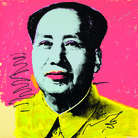 Dal 14 March 2026 al 19 July 2026
Ferrara | Palazzo dei Diamanti
Dal 14 March 2026 al 19 July 2026
Ferrara | Palazzo dei Diamanti
Andy Warhol. Ladies and Gentlemen
-
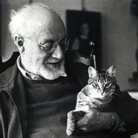 Dal 28 February 2026 al 28 June 2026
Roma | Museo Storico della Fanteria
Dal 28 February 2026 al 28 June 2026
Roma | Museo Storico della Fanteria
L’ultimo Matisse – Morfologie di carta
-
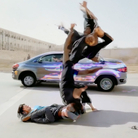 Dal 21 March 2026 al 30 September 2026
New York | New Museum
Dal 21 March 2026 al 30 September 2026
New York | New Museum
New Humans: Memories of the Future
-
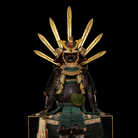 Dal 3 February 2026 al 4 May 2026
Londra | The British Museum
Dal 3 February 2026 al 4 May 2026
Londra | The British Museum
Samurai
-
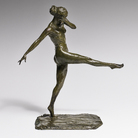 Dal 27 February 2026 al 28 June 2026
Milano | GAM | Galleria d’Arte Moderna
Dal 27 February 2026 al 28 June 2026
Milano | GAM | Galleria d’Arte Moderna
Paul Troubetzkoy. Lo Scultore della Belle Époque
-
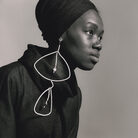 Dal 14 December 2025 al 25 July 2026
New York | MoMA | The Museum of Modern Art
Dal 14 December 2025 al 25 July 2026
New York | MoMA | The Museum of Modern Art
Ideas of Africa: Portraiture and Political Imagination


